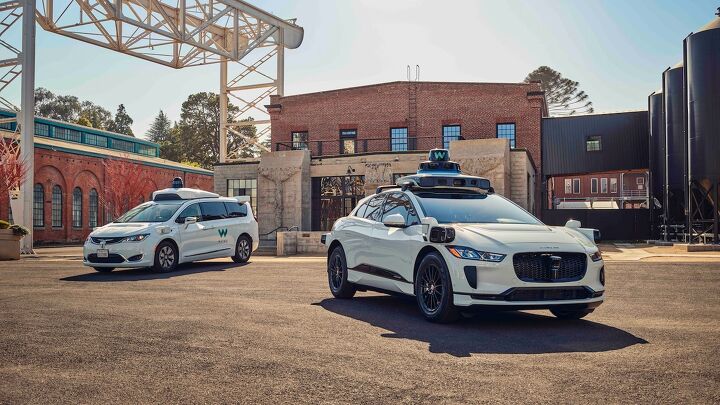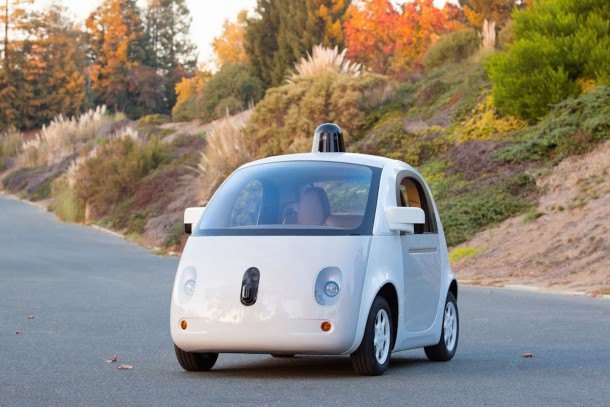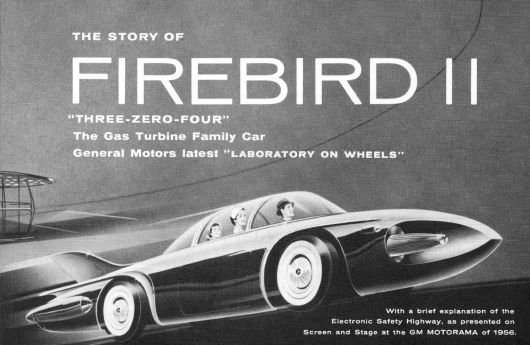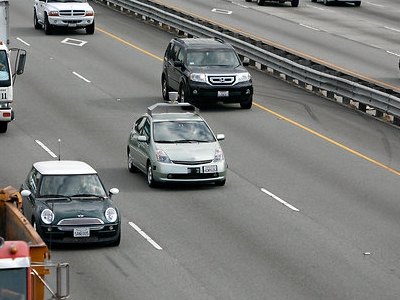#DriverlessCars
Driverless Cars Cause Headaches for First Responders
Driverless cars for everyday drivers do not exist, but a handful of cities in the country have allowed companies like Waymo to begin limited testing of autonomous taxis and other vehicles. Tech-heavy San Francisco is at the forefront of the movement, but its time with robo-taxis hasn’t been without drama.
Waymo's First Commercial Self-driving Service Launches in Phoenix
We’ve arrived. It’s officially #TheFuture.
After years of talk within the auto industry, Waymo says it will become the first company to offer a commercial taxi service using autonomous vehicles when the program launches in Arizona today. Called Waymo One, the Google subsidiary plans to offer the first batch of rides to the 400 individuals who participated in the firm’s pilot program. Afterwards, the service will be expanded to more riders in a broader area.
As with the company’s early rider program, Waymo wants to keep the launch small to assess demand while continuing the company’s testing in an environment it feels comfortable with. Based on the growing assumption that autonomous vehicles can’t handle inclement weather, Arizona seems like the perfect place to keep working out the bugs.
Similarly, public complaints have indicated Waymo’s fleet of Chrysler Pacificas may not yet be perfected.
Waymo Spins Tragedy Into Triumph for Autonomous Vehicles
Last month, a motorcyclist was injured by one of Waymo’s self-driving Chrysler Pacificas. According to the accident report, a car in the left lane attempted to merge into the same middle lane as the Pacifica test platform, which was operating in autonomous mode. The safety driver then “took manual control of the Pacifica out of an abundance of caution, disengaged from self-driving mode, and began changing lanes into [the outside lane].”
Considering the AV wasn’t traveling above 25 mph, it’s a little curious the driver took evasive action, unless the second car attempted to merge directly into it. Regardless, the Pacifica’s lane change placed it into direct contact with a motorcycle that was moving slightly faster. Waymo said that, had the autonomous system been left in play, the vehicle would have assuredly avoided the accident.
Global Survey Reveals Who We'd Prefer to Sacrifice on the Bumper of a Self-driving Car
In 2014, as publications and automakers began making greater noise about autonomous vehicles, researchers at MIT’s Media Lab issued some questions to the public. The institute’s Moral Machines experiment offered up a series of scenarios in which a self-driving car that has lost its brakes has to hit one of two targets, then asked the respondents which of the two targets they’d prefer to see the car hit.
Four years later, the results are in. If our future vehicles are to drive themselves, they’ll need to have moral choices programmed into their AI-controlled accident avoidance systems. And now we know exactly who the public would like to see fall under the wheels of these cars.
However, there’s a problem: agreement on who to sacrifice differs greatly from country to country.
Thwarted on the On-ramp: Waymo Driverless Car Doesn't Feel the Urge to Merge
Tempe, Arizona, that sunny hotbed of autonomous vehicle testing, made headlines earlier this year after a driverless Volvo XC90 operated by Uber Technologies struck and killed a woman crossing a darkened street. The “driverless” vehicle, which had a (distracted) Uber employee behind the wheel, apparently didn’t see the victim. Uber suspended testing after the incident.
Now, Tempe’s making headlines again. A Waymo-operated Chrysler Pacifica found itself the victim of a collision on Friday afternoon, but it’s the behaviour of another Waymo minivan — caught on video by another motorist — that’s generating the most interest today.
Tesla Faces Backlash Over Autopilot Technology in Wake of Crash
Safety advocates are claiming Tesla’s reputation as a leading innovator in the automotive world could breed overconfidence in its new technology, putting drivers in danger.
The May 7 death of a Tesla driver whose vehicle collided with a tractor trailer while in “Autopilot” mode sparked renewed calls for proper vetting of advanced technology in production vehicles — especially if the technology allows the vehicle to drive itself.
Driverless Vehicle Dilemma: Who Should Your Car Kill If Things Go Bad?
We’re told the future will bring us a blissful, autonomous driving experience that allows us to enjoy the scenery as we read our tablets and enjoy a Venti Macchiato, free of the burden of driving decisions and liability.
Now, for the less happy stuff: who should your safety-minded car kill if it’s forced to make an autonomous Sophie’s Choice-style decision — an occupant or a pedestrian?
A study published in the journal Science tackled that question, with researchers posing various scenarios to 1,900 participants via an online survey. The results show our sense of moral duty is matched by our sense of self-preservation.
Buzzfeed's Autonomous Auto Enthusiast: "So Go F*ck a Tailpipe If You Love Cars So Much", Vox Echoes: "Ban Human Drivers ASAP"
There’s a post over at Buzzfeed in which Matt Honan tells us that the future of automobiles is autonomous and how it’s going to be awesome. His conclusion makes me think that he’s not part of the car enthusiast tribe:
Cars are giant, inefficient, planet-and-people-killing death machines.
Self-Driving Cars: Don't Hold Your Breath
Ben Klayman, Reuters’ Detroit-based crack car correspondent, wrote a very good feature on self-driving cars. After interviewing many sources, he comes to the conclusion that “it’s been more than half a century since some of the first concept cars boasting self-driving features were presented to the world” and that this probably will not change anytime soon. Even Eric Schmidt, CEO of Google and the staunchest supporter of the technology cautiously says that “self-driving cars should in our lifetime become the predominant way.”
… But Then, Who Needs New Drivers If Cars Can Drive Themselves?
Just when America’s most promising generation turns up its nose at cars, new technology rides to the rescue of the embattled industry: Cars that do away with drivers. A study by the automaker and union-funded think tank Center For Automotive Research (CAR) and the CPA firm KPMG comes to the conclusion that with self-driving vehicles, “the industry appears to be on the cusp of revolutionary change.” Do you buy that? Jay or nay?
Ask The Best And Brightest: Where Are You In The Driverless Car Debate?
When news hit late last week that one of Google’s driverless cars had been involved in a minor fender-bender, the anti-autonomous driver argument made itself. “This is precisely why we’re worried about self-driving cars,” howled Jalopnik.”Google’s self-driving car seems like the ultimate distracted driving machine.” But on the very same day, Google claimed that
One of our goals is to prevent fender-benders like this one, which occurred while a person was manually driving the car [emphasis added]
Before you know it, the other side of the debate, as epitomized by Popular Science flipped the argument, insisting that
this incident is yet another example — as if we need one — of the human capacity for error. Hopefully, when cars do take over, they’ll be able to prevent these types of incidents on their own.
So yeah, there’s a pretty wide range of opinions on the issue. And with Nevada’s legalization of driverless cars, it’s only a matter of time before something happens that busts the debate wide open again. So, how do you feel about our new robot overlords? I, for one, could live with the technology for freeway/expressway use… but not without drawing some kind of clear lines around legal liability. Off-freeway? No thanks. Too few benefits from packing traffic tighter and too many other variables in traffic. What say you?
The End Of Driving Is At Hand(s Free): Google Cars Plying The Highways Autonomously
No, that’s not a Google Street View Prius being piloted down the 101. The roof-top device is Lidar, part of the sensors that allow it to drive by itself. Perhaps out of a desire to solve a problem they helped create (texting, mobile web use, etc.), Google has come ever closer to perfecting autonomous cars. NY Times reports that Google has a fleet of seven cars plying the highways and streets of California, with paid “sitters” behind the wheel to confirm that everything is ok, as well as to conform with CA law.The cars have driven up to 1,000 miles without any human intervention, even down twisting Lombard Street, and have racked up 140k total driver-less miles. The only incident so far was someone rear ending one of the Priuses at a red light. All we need now is for judges to mandate them for lousy drivers.

























Recent Comments